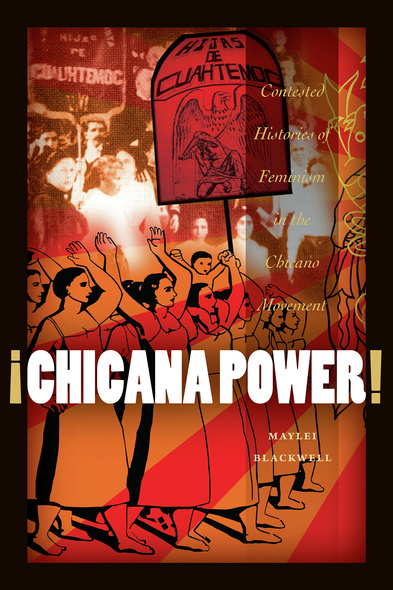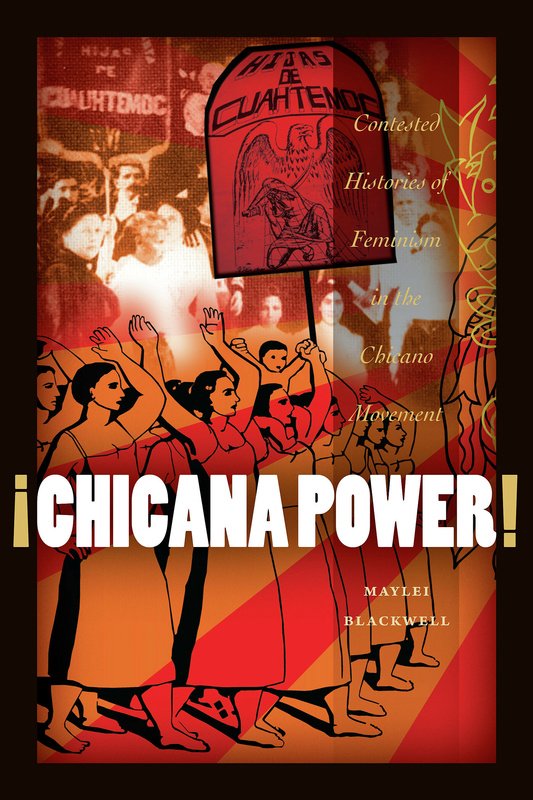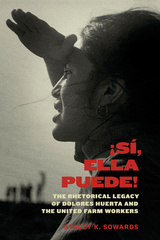¡Chicana Power!
Contested Histories of Feminism in the Chicano Movement
The first book-length study of women's involvement in the Chicano Movement of the late 1960s and 1970s, ¡Chicana Power! tells the powerful story of the emergence of Chicana feminism within student and community-based organizations throughout southern California and the Southwest. As Chicanos engaged in widespread protest in their struggle for social justice, civil rights, and self-determination, women in el movimiento became increasingly militant about the gap between the rhetoric of equality and the organizational culture that suppressed women's leadership and subjected women to chauvinism, discrimination, and sexual harassment. Based on rich oral histories and extensive archival research, Maylei Blackwell analyzes the struggles over gender and sexuality within the Chicano Movement and illustrates how those struggles produced new forms of racial consciousness, gender awareness, and political identities.
¡Chicana Power! provides a critical genealogy of pioneering Chicana activist and theorist Anna NietoGomez and the Hijas de Cuauhtémoc, one of the first Latina feminist organizations, who together with other Chicana activists forged an autonomous space for women's political participation and challenged the gendered confines of Chicano nationalism in the movement and in the formation of the field of Chicana studies. She uncovers the multifaceted vision of liberation that continues to reverberate today as contemporary activists, artists, and intellectuals, both grassroots and academic, struggle for, revise, and rework the political legacy of Chicana feminism.
Maylei Blackwell’s book is an in-depth study of women’s involvement in the Chicano Movement (el movimiento) of the late 1960s and 1970s. As Chicanos in the US organized and protested in efforts to address social issues faced by the community, women began to actively engage with the many gender gaps within the movement. This ultimately led to new forms of gender consciousness, awareness and political identities that challenged the confines of Chicano nationalism. Blackwell draws on oral history and archival research to illustrate these struggles, and provides examples of pioneering Chicana activists, theorists, and feminist organizations.
Maylei Blackwell is Assistant Professor in the César E. Chávez Department of Chicana and Chicano Studies and Women's Studies at UCLA. An interdisciplinary scholar activist and oral historian, she works with indigenous women's organizers in Mexico, Latin American feminist movements, and sexual rights activists, all of whom are involved in cross-border organizing and community formation.
- Acknowledgments
- Introduction. The Telling Is Political
- One. Spinning the Record: Historical Writing and Righting
- Two. Chicana Insurgencies: Stories of Transformation, Youth Rebellion, and Campus Organizing
- Three. Retrofitted Memory: Chicana Historical Subjectivities between and beyond Nationalist Imaginaries
- Four. Engendering Print Cultures and Chicana Feminist Counterpublics in the Chicano Movement
- Five. Interpretive Dilemmas, Multiple Meanings: Convergence and Disjuncture at the 1971 Conferencia de Mujeres por la Raza
- Six. Chicanas in Movement: Activist and Scholar Legacies in the Making
- Appendix. Narrator Biographies
- Notes
- Bibliography
- Index








